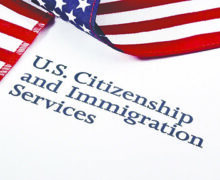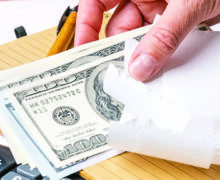
Temporada de Impuestos: 3 Consejos para Evitar ser Estafado por Preparadores “No Calificados”
Tax Season: 3 Tips to Avoid Getting Scammed by “Unqualified” Preparers
La Oficina de Responsabilidad Gubernamental de Estados Unidos alertó a los contribuyentes sobre los estafadores que se hacen pasar por preparadores de impuestos. El IRS señala que los profesionales deben tener un número de identificación fiscal
Millones de contribuyentes este año esperan presentar su declaración de impuestos; sin embargo, muchos pueden tener dificultades al momento de llenar los requisitos por esa razón contratan a los llamados “preparadores de impuestos” para poner en orden los documentos.
Sin embargo, la Oficina de Responsabilidad Gubernamental de Estados Unidos alertó tanto a las personas naturales como jurídicas de evitar ser víctimas de personas que se hacen pasar por profesionales, pero que al final terminan siendo estafadores, a estos individuos la agencia los calificó como preparadores de impuestos “no calificados y sin escrúpulos”, dijo.
En este sentido, la entidad recomienda tomar en consideración algunos consejos a la hora de contratar a un preparador de impuestos:
Debe tener un número fiscal
En primer lugar, el profesional que se contrata debe tener un PTIN es decir, un número de identificación fiscal. Además, debe contar con las credenciales correspondientes, los contribuyentes que deseen hacer uso de sus servicios pueden ubicarlos a través de la página web del Servicio Interno de Impuestos (IRS). Asimismo, el IRS advierte a los contribuyentes que si el preparador de impuestos no firma el documento de declaración y no coloca su PTIN puede tratarse de un estafador. “No firmar una declaración es una señal de alerta de que el preparador pagado puede estar buscando ganar dinero rápido prometiendo un gran reembolso o cobrando tarifas según el monto del reembolso”, indicó.
Respalde su declaración
Una vez que haya terminado la consulta con el preparador de impuesto, solicite una copia del documento de la declaración, esa hoja debe estar firmada por el contribuyente y la persona que le ayudó, igualmente debe revisar con detenimiento que todos los datos estén correctos, sobre todo el número de cuenta bancaria.
Esta es una manera de respaldar la declaración por si el preparador resulta ser un estafador. Según el Departamento de justicia, muchos profesionales de impuestos falsos suelen modificar las cifras con ingresos superiores a los del contribuyente o deducciones inventadas, esto con la finalidad de obtener un mayor reembolso que luego será desviado a las cuentas personales de los embaucadores.
No dejarse engañar con grandes reembolsos
La mayoría de los falsos preparadores de impuestos atraen a sus víctimas prometiéndoles grandes reembolsos, que generalmente son ilegales. Por lo tanto, presentar una declaración de impuesto falsa puede acarrear en un proceso legal y de acuerdo con el IRS la multa puede ser de $5,000 dólares.
Tax Season: 3 Tips to Avoid Getting Scammed by “Unqualified” Preparers
The US Government Accountability Office has alerted taxpayers to scammers posing as tax preparers. The IRS points out that professionals must have a tax identification number
Millions of taxpayers this year expect to file their tax return; however, many may have difficulties when filling the requirements for that reason they hire the so-called “tax preparers” to put the documents in order.
However, the United States Government Accountability Office warned both natural and legal persons to avoid being victims of people who pose as professionals, but who end up being scammers, the agency classified these individuals as tax preparers. “unqualified and unscrupulous” taxes, he said.
In this sense, the entity recommends taking into consideration some advice when hiring a tax preparer:
Must have aTax number
First of all, the professional that is hired must have a PTIN, that is, a tax identification number. In addition, you must have the corresponding credentials, taxpayers who wish to use their services can locate them through the Internal Tax Service (IRS) website.
Also, the IRS warns taxpayers that if the tax preparer does not sign the return document and does not provide their PTIN, they may be dealing with a scammer. “Failure to sign a return is a red flag that the paid preparer may be looking to make a quick buck by promising a large refund or charging fees based on the amount of the refund,” he said.
Support your statement
Once you have finished the consultation with the tax preparer, request a copy of the declaration document, this sheet must be signed by the taxpayer and the person who helped you, you must also carefully check that all the information is correct, especially all bank account number. This is a way to back up the return in case the preparer turns out to be a scammer. According to the Department of Justice, many bogus tax professionals tend to tweak the figures with incomes higher than the taxpayer’s or fabricated deductions, this in order to obtain a larger refund that will then be diverted to the personal accounts of the scammers.
Don’t be fooled with big refunds
Most bogus tax preparers lure their victims by promising large refunds, which are often illegal. Therefore, filing a false tax return can lead to legal proceedings and, according to the IRS, the penalty can be up to $5,000.

























